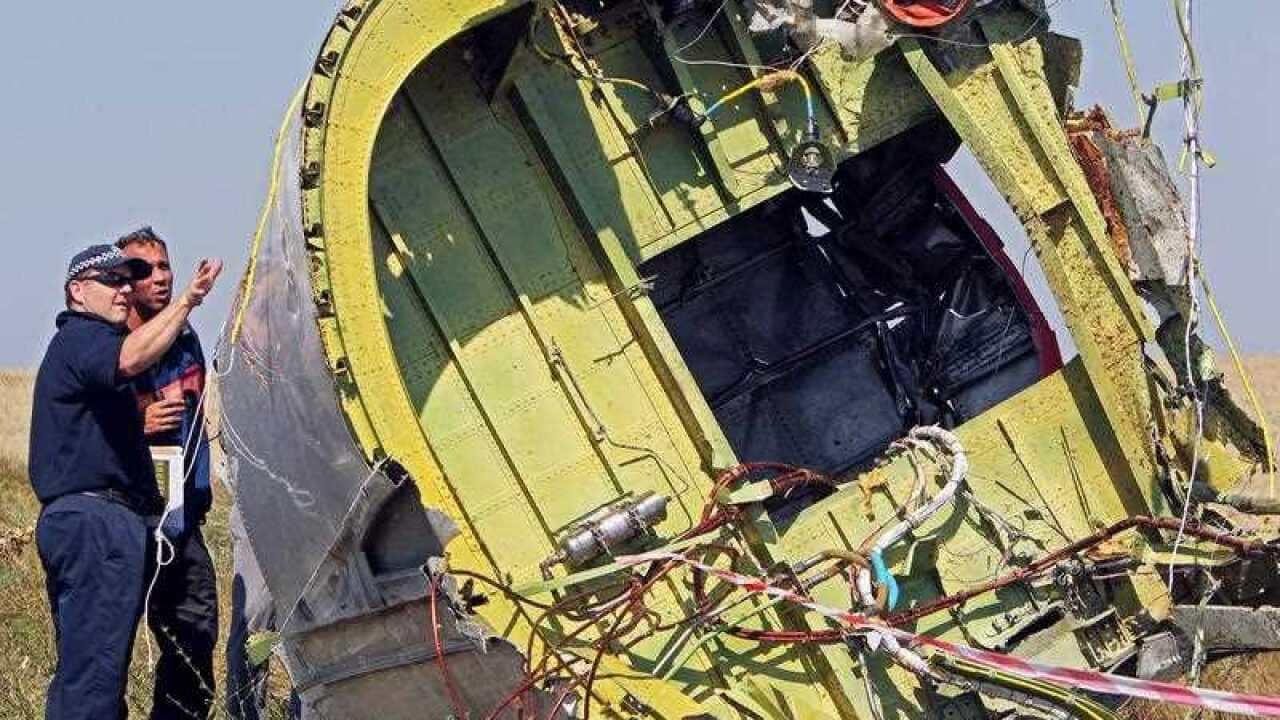Dutch investigators say Ukrainian authorities should have closed down the airspace over the country's war-torn east before Malaysia Airlines Flight 17 was shot down, killing 298 people.
Their report raises questions about how civilian airlines' access to airspace over conflict zones is controlled.
Former pilot and Royal Air Force flying instructor David Learmount said Ukraine had closed its airspace at lower altitudes, but had underestimated its opponent.
"Airspace can be closed by a sovereign state for any reason it sees fit," he said.
"Ukraine reckoned that the rebels in eastern Ukraine only had shoulder-launched missiles which are not very high-performance devices.
“They didn't know that they had powerful missiles so they closed their airspace below 30,000 feet, believing that above, aircrafts would be safe."
The Dutch Safety Board has released a video detailing the route taken by flight MH17 to accompany its report.
In the video, it explained the Boeing 777 entered Ukrainian airspace at an altitude of 33-thousand feet.
The crew then diverted a short distance to the north to avoid a thunderstorm when returning to the airway in the eastern parts of Ukrainian airspace.
In the region, lower levels of the airspace were restricted for civil air traffic as an armed conflict between Ukrainian government and armed groups was in progress.
Flight MH17 was routed above the restricted airspace to way point Romeo November Delta in the Russian Federation.
The flight proceeded normally above the eastern part of Ukraine until it was hit by a BUK surface-to-air missile system fires a missile.
The Dutch Safety Board's report found 160 flights, of which 61 airlines from 32 countries were involved, flew over the area on the day of MH17's crash.
Mr Learmount said civilian airlines don't always need to take guidance from the countries involved in conflict zones.
"Airlines receive intelligence," he said.
"They can get it through their own equivalent of the Foreign Office. They can do their own research.
"In the end, the decision is not from the airline industry, it is every individual airline [that] has to make its own decision. That was true then and it remains true now."
A former pilot and aircraft safety controller, Desmond Ross, told news service Russia Today what the pilot of flight MH17 did was illegal.
He said notices called Notice to Airmen or NOTAM alert aircraft pilots of potential hazards along a flight route by the minute.
Mr Ross argued the captain of the aircraft, operations staff and the airline would have read the NOTAM but still chose to fly over the conflict area.
"It was wrong," he said.
"At that point in time, on that particular night, what the [pilot] did was illegal with an illegal flight plan.
"So the responsibility has to be shared on that occasion not only by the captain of the aircraft, by the operations staff who prepared the flight plan before he signs off on it, but also by the air traffic control system."
The Dutch Safety Board's chairman, Tjibbe Joustra, has recommended international aviation rules be changed to force operators to be more transparent about their choice of routes.
"States that are involved in an armed conflict should put more effort into promoting the safety of their air space," he said.
"Other states, operators and international organisations will have to improve their risk analysis.
"Moreover, operators should be more transparent about the flight routes they choose. This will require changes to the international aviation regulations."
Mr Ross agreed, but said it was difficult to avoid flying over conflict zones.
"The reality is that aircraft are flying over conflict zones every day of the week," he said.
"You've only got to look at the map and unfortunately, in the world that we live in today, if you take those routes between Europe and south east Asia or Australia or the Pacific, it's very difficult to find a route that doesn't fly over a conflict zone of some sort.
"Whether that's in Africa, the Middle East, in this case the Ukraine, you've got Israel and Palestine, you've got Afghanistan, you've got Iraq and so forth."

